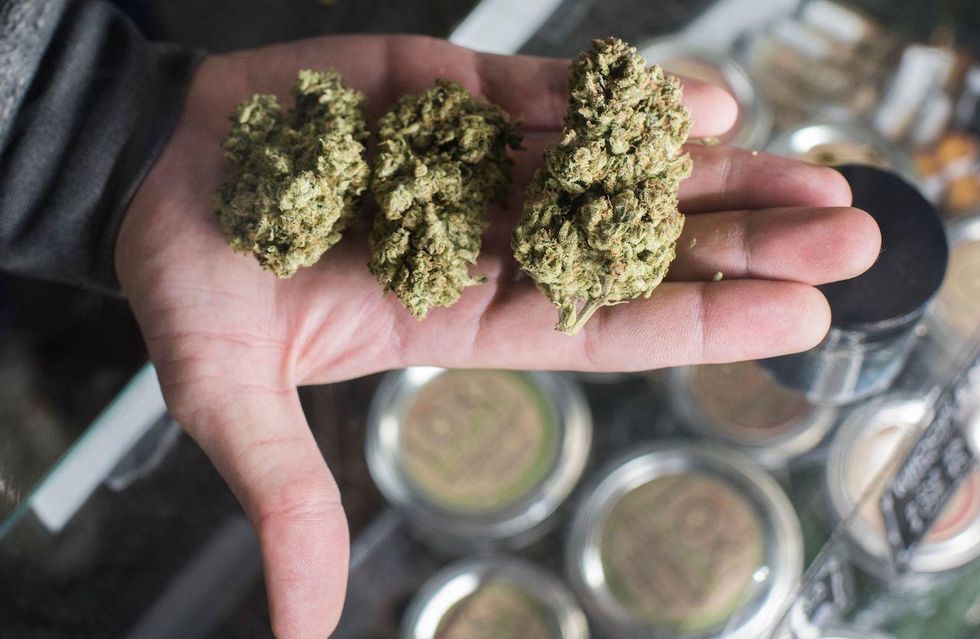
The New Jersey Department of Health is considering expanding the state's medical marijuana program to include opioid addiction. (Robyn Beck/Getty Images)

The New Jersey Department of Health wants to expand its medical marijuana program to include opioid addiction treatment.
“Right now the consideration is adding it as an addition to what’s called medication-assisted treatment, that is the evidence-based treatment people get for addiction,” Department of Health Commissioner Shereef Elnahal told WLNY-TV. “When they’re addicted, it actually helps them get off and get into recovery.”
Elnahal said the state is exploring the possibility of medical marijuana as a potential treatment that could help in the battle against the opioid crisis that has claimed thousands of nationwide.
In 2016, more than 2,000 people died from drug overdoses in the state of New Jersey, according to the Centers for Disease Control. Nationwide, opioids contributed to more than 42,000 overdose deaths during the same year.
In New Jersey, the state added five new conditions for prescribing medical marijuana in March including Tourette's syndrome, anxiety, migraines, chronic pain related to musculoskeletal disorders and chronic pain of visceral origin, according to the New Jersey Department of Health.
Among the new conditions, doctors can now prescribe medical marijuana to people with opioid use disorder resulting from treatment of "chronic pain related to musculoskeletal disorders."
The decision allows physicians a non-opioid option when first prescribing medication for pain.
“It reduces the reliance physicians have on opioids to treat pain,” Elnahal said. “Marijuana is an effective treatment for pain.”
New Jersey has more than 25,000 people enrolled in its medical marijuana program, according to WLNY.
Dr. Harris Stratyner, an addictive behavior psychologist in New York, told the news station that there's not enough research to prove medical marijuana will work for opioid addiction.
“There’s just not enough scientific research out there to show it’s effective,” Stratyner said. “It may be dangerous and trigger opioid addiction if that’s your drug of choice.”
But Elnahal said he wants New Jersey to create the studies and do the research to find out if it will help.
Straytner said he fears marijuana could pose more of a problem than it would help because many drug users have psychiatric disorders and often use opioids or stimulants to self-medicate.